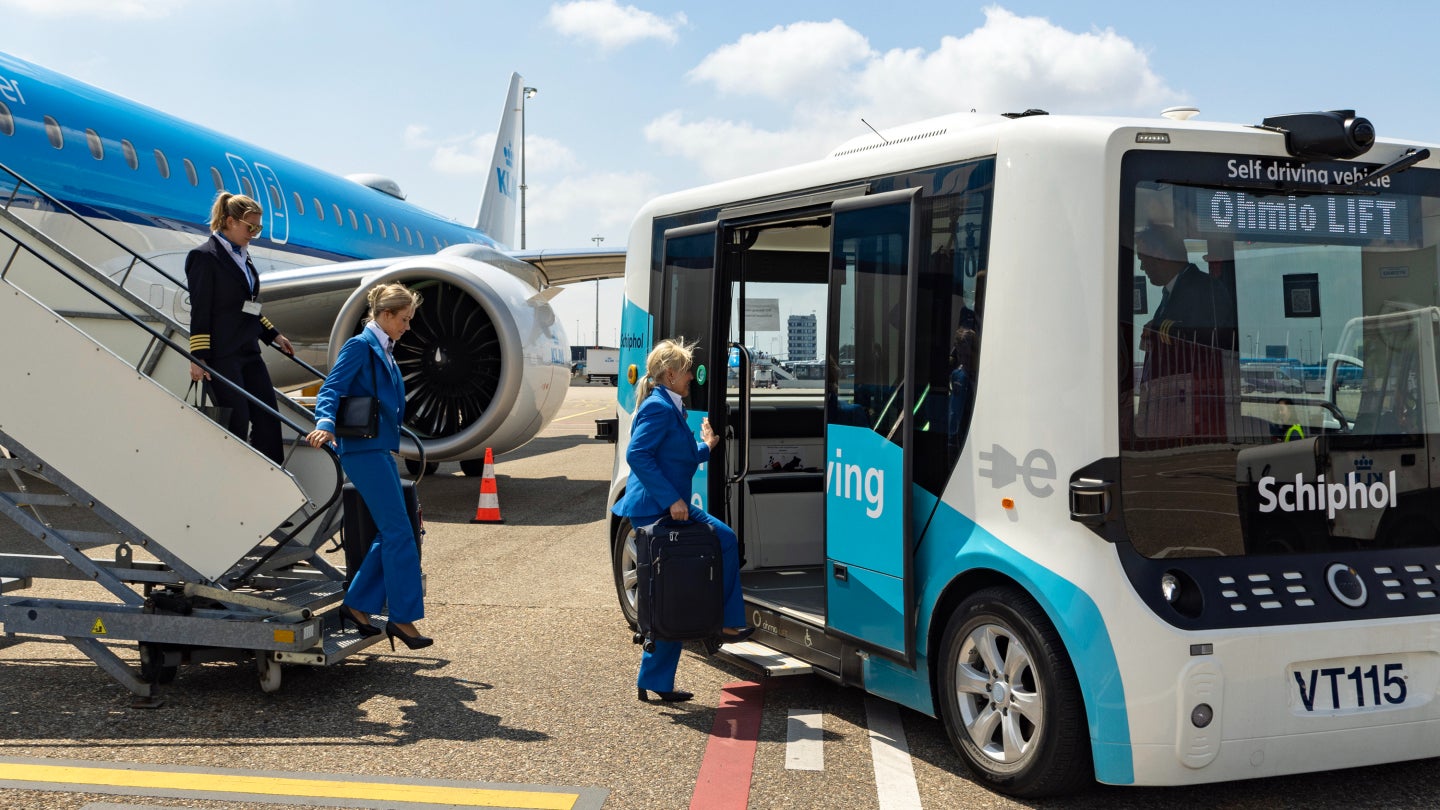Amsterdam's Schiphol Airport has teamed up with Dutch airline group KLM to test self-driving shuttles for transporting flight crew. This trial marks the second phase of testing for the shuttles at Schiphol, and will see KLM Cityhopper crew using them on a pre-programmed route between the apron and their aircraft.
Jan Zekveld, head of innovation at the Royal Schiphol Group, expressed enthusiasm for the trial, stating that the airport was eager to analyse the data collected from previous airside tests conducted in March. Zekveld highlighted the importance of understanding how airline crew members experience self-driving transport, stating that this will build trust in the technology and potentially pave the way for future integration of other autonomous vehicles.
The Ohmio-built shuttles will navigate a fixed route, but they are equipped with advanced technology including cameras, GPS, and LIDAR sensors. These sensors enable the vehicles to detect objects up to 30 metres away, ensuring safe and efficient operation.
The electric shuttles, supported by KLM Ground Services, are part of a broader effort to decarbonise operations at Schiphol Airport. This aligns with the airport's ambitious goal of achieving emission-free ground operations by 2050.
Maarten Koopmans, managing director of KLM Cityhopper, expressed his company's strong commitment to supporting the trials, noting that it fits perfectly with KLM's own objective of achieving emission-free ground handling by 2030.
This initiative follows the trend of autonomous ground support vehicles in the aviation industry. Schiphol itself has been using self-driving baggage tractors since 2021, while London Gatwick Airport in the UK trialled autonomous cars for employee transport around its airfield in 2018. The successful integration of these autonomous solutions reflects the industry's commitment to innovation and efficiency.
Article
Business

Schiphol Tests Self-Driving Shuttles for KLM Crew

